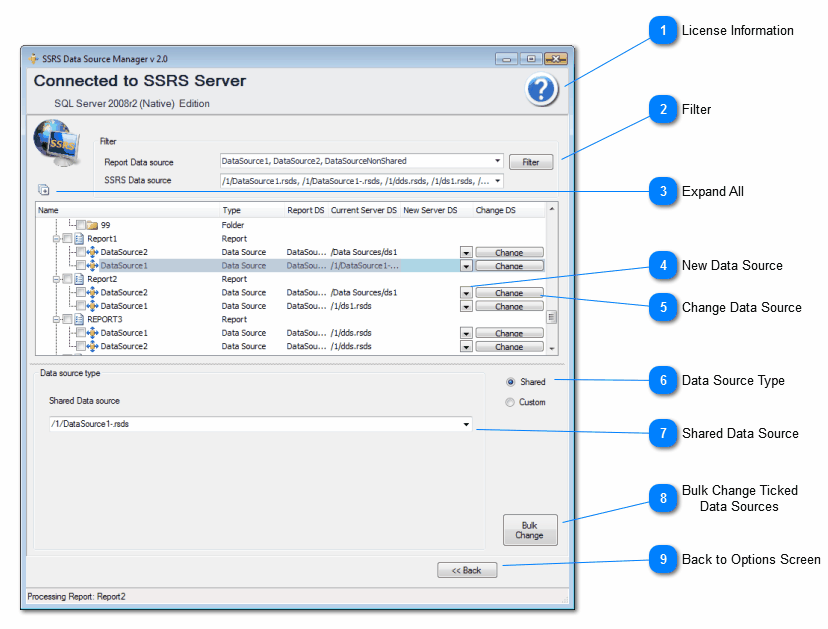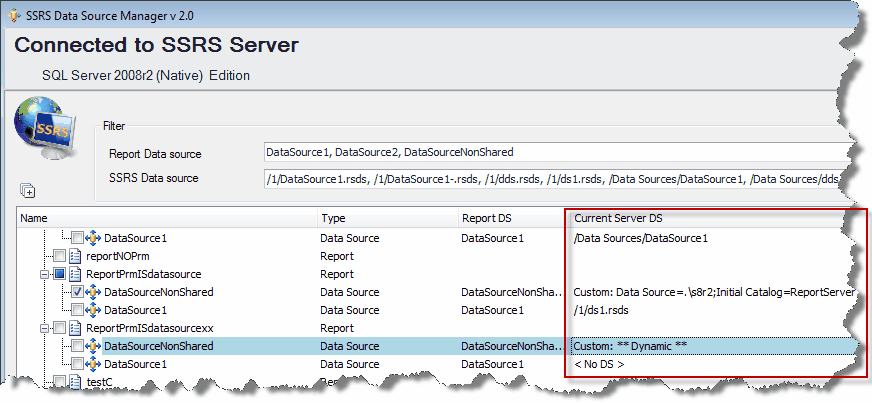
The data source manage can be used in 2 ways
1. Single data source change- Change just one data source.
Items (4) and (5) in the picture below are used to change a single data source.
2. Bulk data source change- Change multiple data sources across multiple reports and models.
Items (6) to (8) in the picture below are used to bulk change data sources.
Notes.
•To enhance the bulk change filtering can be used to speed up the selection.
•Single change will only allow changes to shared data data source. If you need to change the data source to a custom data source you need to use the bulk change option.

Number |
Description |
1 |
License Information. View and add license |
2 |
FIlter datasources, by report data source and/or server data source. Note. Filtering only occurs when the filter button is pressed |
3 |
Expand all- Expand the treeview. |
4 |
SIngle data source update. Select new datasource and press change button (5) |
5 |
Change button. Update single data source. |
6 |
Data source type |
7 |
Shared data source to change. |
8 |
Bulk change button |
9 |
Explanation of Treeview Columns.
This details the column information in the above picture.
Name |
Item Name |
Type |
Item type eg site, folder, report, model, data source |
Report DS |
Name of the report data source in the report |
Current Server DS |
Current Data source on the server. see below for explanation of data source details |
New Server DS |
Name of the new shared data source. Note this only shows shared data sources. If you need to change to a custom data source use the bulk change option |
Change DS |
Button to single change the datasource on the specified row |
Explanation of Current Server DS Column
In the picture below can be seen the current Server DS column- this is the current server data source.
Item |
Description |
<NO DS> |
This means no data source.
This can occur for 2 reasons. Firstly the shared data source has been deleted on the server, or a report was deployed and could not find the data source.
|
Begins with Custom: |
This is a custom data source. There are 2 options for the custom data source
1.The connection string for the custom data source will be displayed after Custom: 2.For dynamic connection strings (eg parameters are used in the connection string) this will be shown as Custom: **Dynamic**. To see the dynamic connection information see information icon
|
Does not begin with Custom: <NO DS> |
the shared data source name is displayed |

